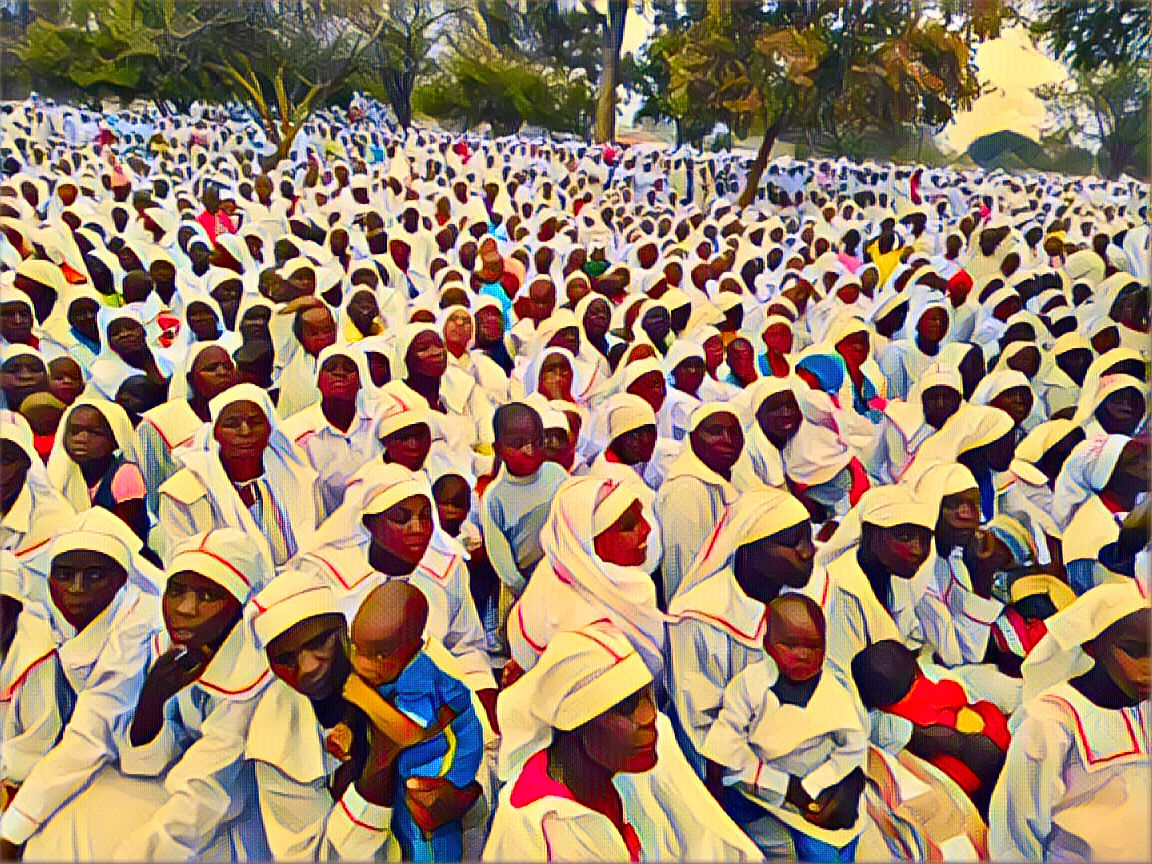The Johanne Marange Apostolic Church faces scrutiny over childbirth practices that endanger women and newborns. Church elder Spiwe Chizu, 62, cautiously shared her experiences, highlighting the sect’s strict beliefs and their dire consequences.
Chizu, clad in traditional apostolic attire, initially hesitated to discuss childbirth within the sect. Her fear of judgment, ostracism, or even arrest was palpable. However, after assurances of confidentiality, she opened up about the church’s practices.
“We are not allowed to go to hospitals; it is against our church beliefs,” Chizu said. “I have never been to any hospital since birth. I have given birth to 13 children, three of whom are now deceased, but I have never delivered in a hospital.”
The topic of maternal health is deeply sensitive within the Johanne Marange Apostolic Church. Many women and young girls have tragically lost their lives during childbirth due to inadequate prenatal care and a preference for home births without medical supervision.
A June 2023 UNICEF report on adolescent pregnancies in Zimbabwe revealed that religion significantly influences sexual and reproductive health and rights (SRHR). The study showed that 49% of adolescent girls in the apostolic religion had no access to SRHR services.
Several girls from the Johanne Marange sect have died giving birth at church shrines. Activists have been petitioning the government to enforce laws requiring sect members to seek medical attention for childbirth.
Even during complications, church members rely on midwives who are considered spiritual. “The midwife’s skilled hands, gently guide the mother’s abdomen, palpating the baby’s position,” Chizu explained. “They don’t use gloves or sterilized tools. The ordained midwives believe their hands are pure.”
After delivery, the umbilical cord is cut with a razor blade, using a middle finger to measure the length of the fetal umbilicus. Chizu noted that sometimes the mother or child dies, but such incidents are often foretold by the spiritual leaders.
Newborns are subjected to traditional practices instead of evidence-based medical care. Rituals, such as using lemon and cooking oil to cure fevers, are common. The church’s doctrine upholds that infants fall ill due to their parents’ impurity, particularly the mother’s.
If a child becomes sick, the mother is coerced to confess her supposed sins to “save” the child. “A child cannot just get ill out of the blue,” Chizu said. “Once the mother confesses, the child is immediately healed. If she does not confess, the child will die.”
These practices shift blame from a lack of medical care to the mother’s alleged moral transgressions. This leaves mothers with an unbearable choice: confess to sins they may not have committed or risk losing their child.
Women in the Johanne Marange sect face peril and heartache during childbirth but persevere, relying on religious traditions and communal support. The hidden horrors of their experiences call for a re-examination of the intersection of faith and healthcare. There is an urgent need for compassion, education, and medical care to reach these vulnerable mothers and their newborns.
The issue of maternal health is deeply sensitive and taboo within the Johanne Marange Apostolic Church. Numerous women, including young girls, have tragically lost their lives during childbirth. The community has been ravaged by the devastating consequences of inadequate prenatal care, poor access to healthcare, and a preference for home births without medical supervision. The mere mention of the topic is often met with hushed tones, tears, and painful memories, as the church’s strict beliefs and practices have contributed to alarming maternal mortality rates.
The silence surrounding this issue is intense, as many families have suffered unimaginable losses, and the community struggles to come to terms with the tragedy and grief that has befallen it. The hidden horrors of their experiences call for a re-examination of the intersection of faith and healthcare. There is an urgent need for compassion, education, and medical care to reach these vulnerable mothers and their newborns.
Women and girls’ rights activists have been petitioning the government to enforce laws that compel members of the Johanne Marange sect to seek medical attention for childbirth. Yet, even during complications, members pin their hopes on church midwives. “The midwife carefully inserts her hand in the birth canal, using her fingers to gently dislodge the baby’s shoulder if the baby is stuck in her mother’s womb, for instance. She guides the baby out, easing a mother’s distress.”
The midwives don’t use gloves or sterilized tools, according to Chizu. “After the delivery, the umbilical cord is cut with a razor blade, and we use the middle finger to measure the length from the fetal umbilicus and placental attachment of the umbilical cord, where it can be cut from.
The Johanne Marange Apostolic Church’s doctrine upholds the belief that infants fall ill due to the impurity of their parents, particularly mothers, according to Chizu. According to this belief, mothers who commit sins like adultery or witchcraft put their children at risk of contracting any one of the six killer diseases such as measles or polio.
If a child becomes sick, the mother is coerced to confess her supposed transgressions to “save” the child. “A child cannot just get ill out of the blue,” Chizu said. “Once the mother confesses, the child is immediately healed. Church elders will take the woman, the mother of the sick child, aside and force her to confess. If she does not confess, the child will die.”
Though the journey of childbirth is fraught with peril and heartache, women of the Johanne Marange sect persevere, relying on religious traditions and communal support. As the women’s stories unfold, a clarion call resonates, urging for a re-examination of the treacherous intersection of faith and healthcare and the urgent need for a lifeline of compassion, education, and medical care to reach these vulnerable mothers and their precious newborns.
Source: Newsday


